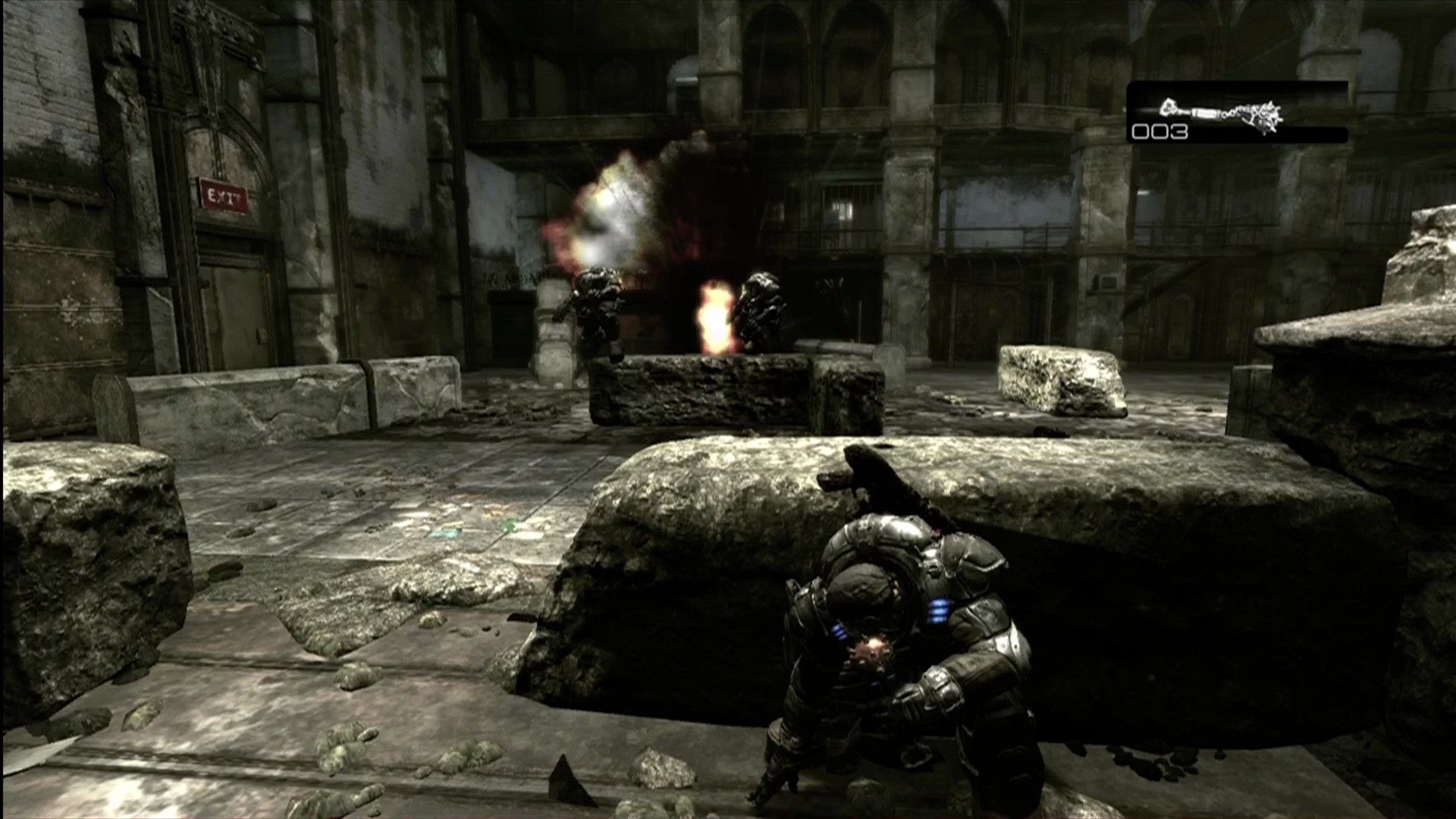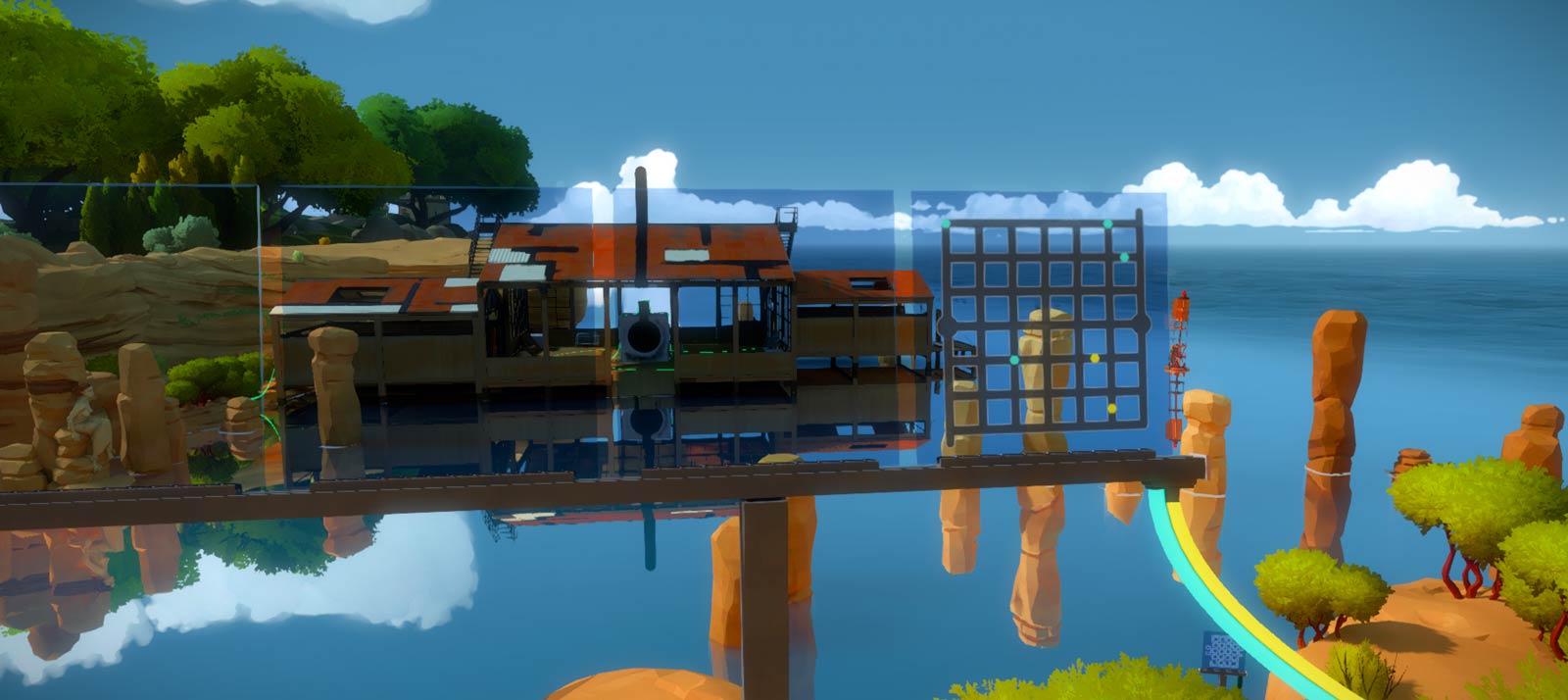Trending
Opinion: How will Project 2025 impact game developers?
The Heritage Foundation's manifesto for the possible next administration could do great harm to many, including large portions of the game development community.

Featured Blog | This community-written post highlights the best of what the game industry has to offer. Read more like it on the Game Developer Blogs or learn how to Submit Your Own Blog Post
Interactivity is what makes our medium unique. In some cases it is used to tell stories or create virtual art galleries. However, if gameplay itself is the core tool for delivering value, shouldn't it then always challenge the player?


These days quite a few games boast about their difficulty in their product descriptions. Subset Games for example promotes their indie hit FTL with the "constant threat of defeat". Cellar Door Games let us know that their platformer Rogue Legacy is "HARD" in mighty capital letters. Obviously Dark Souls became well-known for being "extremely deep, dark and difficult". And The Impossible Game carries its message right in its title. All these at first probably rather daunting statements have actually become suitable for promotional purposes. This development is not only based on the elitism of the so-called "hardcore" gaming crowd out there, but also indicative of a deficiency in today's gaming landscape that is severely missing a specific element that used to be core to the medium: challenging gameplay.
The following article is primarily concerned with games which, in trying to deliver value to their audience, rely on interactivity first and foremost. At the other end of the spectrum there are for example the so-called "Walking Simulators", such as Firewatch or Gone Home. These titles focus on the artistic arrangement of their elements and telling deeply meaningful stories. Their lack of challenging gameplay is based upon their very nature and thus cannot be held against them. The same is true for extremely story-heavy titles such as Heavy Rain or The Walking Dead.

The article is not concerned with this kind of "gameplay".
However, the bulk of the industry and especially modern AAA titles typically rely on game mechanics. Of course one can, without further ado, accuse Call of Duty or Assassin's Creed of focusing way too much on audiovisual spectacle without much gameplay depth, and rightfully so. But without their interactive component, these titles would not generate much interest at all. After all, Hollywood still outclasses games in terms of explosive shootouts and elegant murder orgies.
While in past days it was perfectly normal for games to challenge the player through the interaction with the gameplay system itself, and thus generate long-term motivation, this concept is not a given anymore these days. Typically most of the "big" games come down to being, more (God of War) or less (Shadow of Mordor) preplanned, round tours through all the content. And once all the tourist attractions were presented to the player, the game is "beaten". Of course many players do not even come close to that point, for example due to the hype quickly dying down when actually playing and also games often being heavily diluted just to stretch their content over more hours.

On rails through the content museum.
Those on the other hand who manage to get to the end, will often find pseudo replay value in the form of a "New Game Plus" mode. Typically the idea hiding behind this euphemism is performing the whole asset tour again, just to experience a few bonus pieces of content here and there. In almost all cases this is of course a horribly inefficient endeavor. And if the additional mode adds actual value to the game, this raises the question of why it was not integrated in the base game to begin with, and therefore will never be experienced by most of the players.
In contrast to that, true replay value in games lies in the iterative learning process every player traverses when mastering the gameplay mechanics. As long as there is depth to discover, interacting with the game stays interesting. To foster this learning process, the player has to be challenged depending on his current level of skill. Mostly automatic "Press X to win!" gameplay obviously does not encourage the player to further develop his skill and understanding of the system. It also does not help to present the game events in spectacular ways. What matters is what the player actually does and whether he has to think about his actions, and not just trigger their execution like pressing the play button of a DVD player.

Press X to slaughter hordes of enemies!
The same is true on the level of thematic meaning. A story can emphasize the importance of an event, a decision, or a character in all kinds of ways. However, if this element of the game does not matter just as much gameplay-wise, then it is completely irrelevant. The best example of this problem is probably the seemingly important but in the end completely trivial decision of whether to exploit the Little Sisters in Bioshock or not. Challenging interaction on the other hand, confronting the player with problems that are genuinely difficult to solve, is how games communicate to players that their participation is meaningful. Of course challenge alone does not guarantee a good gameplay experience. It still has to be integrated into the game in an enjoyable way and dodge many game design pitfalls.
However, the aforementioned content tours as well as narrative games often lack any challenge to begin with, and on top of that actively work against it. For a story to unfold its intended impact as the author had planned it, it has to progress steadily, ideally with a carefully chosen pacing. The same is true for an experience based upon traversing content piece after content piece. In both cases, progress and even closure has to be guaranteed. A game that is interesting and challenging in the ways described above on the other hand cannot do that. Otherwise it commits itself to triviality and irrelevance from the very start.

The solution to the "story vs game" problem: Eliminate one of the two.
That is the reason why many strongly cinematic games, that primarily generate value by telling a story, have recently started replacing their gameplay by merely letting the player choose which movie snippet should be played next. Effectively they have eliminated any gameplay and thus the above-mentioned conflict. And in the few cases when they try to clumsily introduce some actual gameplay back into the experience, they risk the consistency of their storytelling. A prominent example of this phenomenon is Telltale's The Walking Dead that regularly forces classic adventure tasks upon the player, even though they do not make a whole lot of sense in the context of the story and some characters even have to actively play dumb.
Of course there are still many games that focus on providing interesting gameplay, wherein the abstract properties of the ruleset are placed at the very core of the experience. This includes multiplayer titles such as Counter-Strike, Starcraft or League of Legends, as well as match-based single-player games like Civilization or most roguelikes. While confronting the player with an appropriate opponent to support the feeling of flow is a well-established concept in competitive gaming though, this idea is far less common in the area of single-player games. A notable exception is Auro's pioneering solitaire Elo system.

There are too few games that take the player seriously as a thinking being.
Other examples of the "gameplay first" philosophy include sophisticated puzzle games, that thoroughly explore a single innovative core mechanism in all its emergent properties. Prime examples are Portal with its "portal gun" or Jonathan Blow's The Witness. The latter openly parades its respect for the player's time and intelligence on its Steam page. The fact that this is not a base standard but treated as a "unique feature" says a lot about the modern day gaming landscape, and relentlessly reveals its horrendous condition.
There are various reasons for the lack of challenging and sophisticated gameplay systems in today's gaming market. The craft of game design in its professional form is still a very young field, so the orientation towards the at first sight seemingly related and already way more mature medium of movies is understandable. On top of that, gameplay depth is usually not easily recognizable on the surface, especially compared to audiovisually impressive scenes or a passively consumable story. Challenging gameplay always means effort for the players and thus a potentially smaller audience. However, those "rough edges" are exactly what makes games special and potentially artistically relevant. If the medium wants to progress as an art form, shallow indulgence has to make way for the inconvenient misfits way more often.

Is it art? Just an obstacle course? Or even both?
Of course all the attitudes that follow directly from the horrendous condition of the medium are worthy of condemnation as well. One example is Phil Owen's book "WTF Is Wrong With Video Games?", and the excerpt Polygon published a while ago. In his opinion gameplay, for example in The Last of Us, is necessarily meaningless and nothing but a nuisance. Who should need a trivial "obstacle course" when the "art stuff" obviously lies in the visuals and the storytelling? Given the mechanical shallowness of most modern games, such an attitude is understandable, but still harmful. In the end, games do not function like other media at all. Gameplay is inherently abstract. It does not make concrete points about love or friendship. It does not have to paint a dystopian future to be relevant compared to other forms of art. The meaningfulness and beauty of games lies in allowing the player to take a peek at the inner workings of his mind. Games enable us to witness processes of thought, creativity and learning in the most complex part of the human organism. Meaningless? Unlikely.
Read more about:
Featured BlogsYou May Also Like